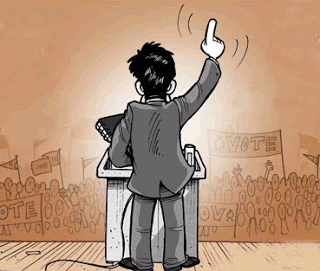Sociolingüística
Sociolinguistics
Actos del habla
Cada vez que emitimos un mensaje damos lugar a un acto de habla, con un enunciado que produce un cambio en el estado de las cosas.

Acto Locutivo
Es el acto que realizamos al decir algo. El enunciado en sí es una locución.

Acto Ilocutivo
Es la intención contenida en el enunciado; ésta actúa como una fuerza sobre el receptor, también llamadafuerza ilocutoria, que producirá un efecto en él.

Acto Perlocutivo
Es el efecto que el enunciado produce en el receptor, la reacción o consecuencia de lo que se ha dicho.
People sometimes end up in confused arguments about what words ‘really’ mean.
Just because one meaning of a word is older than others, this doesn’t make it the 'real’ meaning of that word, and you would find yourself in all sorts of trouble if you tried to enforce this line. For instance, in Old English, 'man’ meant 'human being’, irrespective of sex and age, but I doubt (m)any adult women would use this as grounds to use the 'Men’s’ room at a movie theatre. Similarly, 'meat’ originally meant ’(solid) food in general’, but this meaning is now wholly lost.
Most linguists find the notion of 'real meaning’ unhelpful. Instead, they find it more useful to talk about what is conventionally implied by a word when it is used, what other words it frequently occurs with, and what it implies when it is used in different conversational contexts.
—
Introducing Sociolinguistics by Miriam Meyerhoff, 2nd ed.
